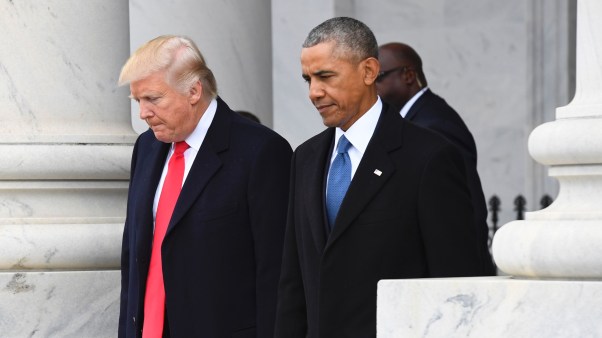Even though the Messianic Jewish Alliance of America (MJAA) has been around for 75 years, leaders of the organization regard its forthcoming anniversary convention as a “coming-out party.”
“The time has arrived for us to say to the Jewish and Christian world, and to the secular world, ‘We are here,’ ” says Joel Chernoff, MJAA vice-president, who is perhaps best known as singer/song-writer for the group Lamb. “We have definite beliefs and a definite direction, and we are ready to make ourselves known as articulate players in the world’s affairs.”
After decades of quiet existence as the Hebrew Christian Alliance of America, the organization expanded rapidly following the Jesus movement of the late 1960s. Spurred by an influx of young Messianic Jews, membership grew to include some 90,000 believers and 130 member congregations across the country, most of which are nondenomi-national. A name change in 1975 reflected a closer identification with members’ Jewish heritage. (Most prefer to be called Messianic Jews rather than Christians, a term they regard as a denial of their cultural and religious heritage.) In 1986, the International Alliance of Messianic Congregations and Synagogues was formed, and it now has assemblies on five continents.
During the past two decades, two other organizations were formed: the Union of Messianic Jewish Congregations in the late 1970s, and the Fellowship of Messianic Congregations in the early 1980s. The three organizations differ only slightly in structure and emphasis; many congregations hold dual memberships. Yet the MJAA remains the oldest and largest. Organizers hope as many as 3,000—about twice the usual number—will attend MJAA’s biennial conference next month at Messiah College in Grantham, Pennsylvania.
Between Two Worlds
In spite of its growth, the Messianic Jewish movement has until recently attracted little attention. Shunned by Jews and viewed askance by some Christians, it purposely maintained a low profile. But now that the young movement has grown in size and strength, it is ready to test its voice, leaders say.
Their first opportunity came last December, when the Israeli Supreme Court issued a ruling regarding Israel’s Law of Return that declared, “Messianic Jews do not belong to the Jewish nation.…” The decision struck deep at the identity of Messianic Jews, who profess Jesus (Yeshua) as Messiah and hold an evangelical theology, yet still consider themselves Jews.
In response to the Court decision, MJAA issued a statement (CT, April 9, 1990, p. 48), took out a full-page ad in the Jerusalem Post, and mounted a petition drive asserting their place in the Jewish community. Chernoff believes the media exposure has shocked other Jews. “Most don’t know that we exist, or that we are organized,” he said.
The higher profile attracted the attention of a major Jewish weekly, the Baltimore Jewish Times, which recently devoted a cover story to the topic. “Their numbers are growing,” wrote assistant editor Phil Jacobs. “They are not hysterical evangelists. They are the people next door.”
That is exactly how Messianic Jews want to be viewed, says Michael Wolf, president of MJAA and messianic rabbi (pastor) of Beth Messiah congregation in Cincinnati. Reaching the Jewish community with the message of Messiah Yeshua is an essential part of congregational life. Like many other messianic leaders, Wolf views the growth of the movement as the outpouring of God’s Spirit on the Jews promised in the end times. Prophecy, especially promises regarding the future of Israel, plays another important role in Messianic life. “Davidic” worship, a charismatic worship style, and distinctive music characterize most congregations. So too does observance of biblical feasts, holidays, and practices, such as keeping “biblical kosher.”
Wolf likens Messianic Jewish congregations to indigenous churches planted by missionaries in other countries. “We have grown to accept that in other cultures,” he said, “but the idea of faith in Jesus in a Jewish context has for some reason been harder to get across [to gentile Christians].” Though Wolf says relations between Messianic Jews and evangelicals are “excellent,” some fundamentalists continue to assail Messianic Jews as “modern-day Judaizers” who are “rebuilding a wall of partition” between Jew and Gentile. Wolf and other leaders are also troubled by dominion or kingdom theology, which teaches that the church has replaced Israel as the recipient of God’s promises. “Spiritually there is no difference between Jew and Gentile,” Wolf says, “but there is still a purpose of God for the Jews as a people.”
In some sense, Messianic Jews live suspended between two cultures. But Wolf says most feel no sense of alienation. “We have a strong sense of our own spiritual and biblical identity,” he says, something he feels is often lacking in both the Jewish and the Christian communities. “We find great confidence and encouragement in that.” That confidence, Wolf predicts, means the rest of the world will be hearing much more from Messianic Jews in the future.
By Ken Sidey, with research by Christine Lehmann.










